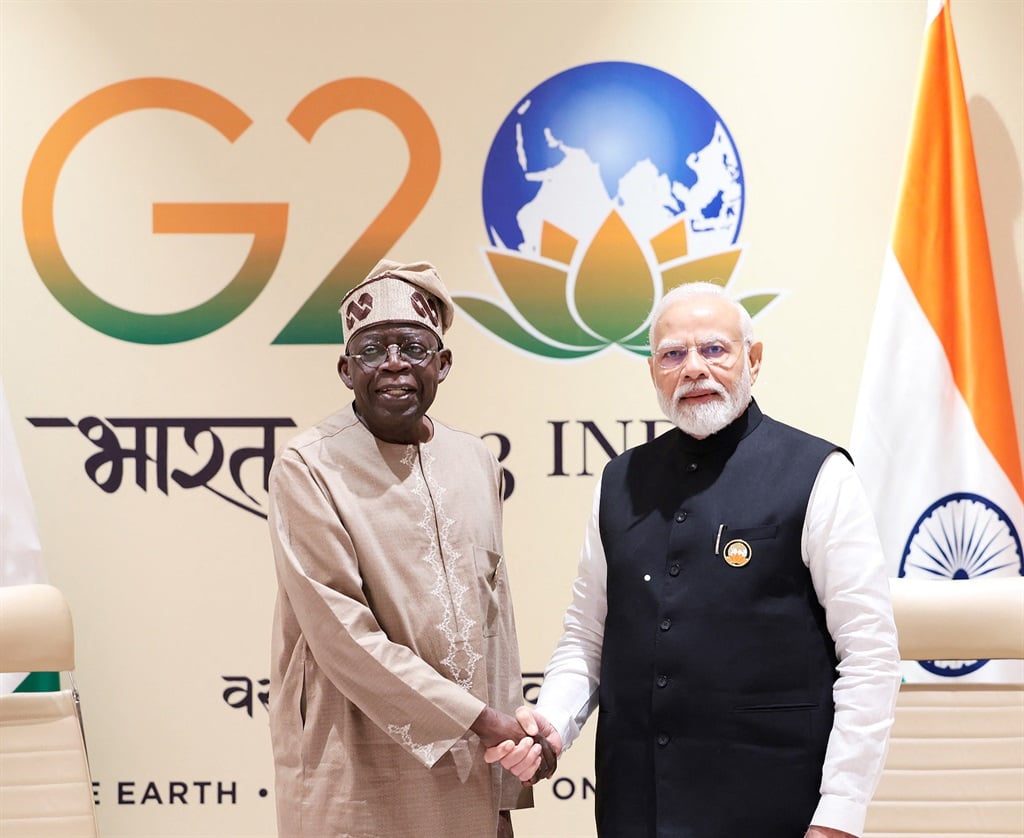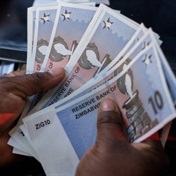
- G20 membership for Africa has given the poorest and most climate-vulnerable regions a voice.
- With Africa now a member, the G20 framework on debt should be accelerated.
- But deeply affected countries are not at the table, and climate-change progress has been slow.
Africa is the poorest and most climate-vulnerable region of the globe. And now it forms part of the powerful Group of 20 - technically making it the G21 - via the inclusion of the African Union (AU).
That, some believe, can change a lot of things.
"This membership, for which we have long been advocating, will provide a propitious framework for amplifying advocacy in favour of the continent and its effective contribution to meeting global challenges," said AU chairperson Moussa Faki Mahamat in a statement.
Africa's primary difficulties were addressed in the New Delhi Declaration, which marked what has been widely regarded as the most progressive G20 summit since the group was founded in 1999 to debate global economic and financial issues.
Debt and SDGs
Eric LeCompte - the executive director of Jubilee USA Network, an alliance of more than 75 US organisations and 750 faith communities - has been tracking G20 meetings since 2010.
In his analysis of the New Delhi Declaration, he noted world leaders were aware of how far off from set targets the world was, especially in the poorest nations, the majority of which were in Africa.
"The G20 recognised that only 12% of the 2030 global development goals are on track.
He said:
While that will be an important discussion at G20 level, the process will be hamstrung by trouble in Francophone Africa.
The AU has six members under suspension: Sudan, Mali, Guinea, Burkina Faso, Niger, and most recently Gabon.
This means they are not represented at the G20 by way of the AU, yet they are some of the most affected by decisions on debt.
That is compounded by the fact they are under regimes with minimal public accountability.
On the sidelines of the African Forum and Network on Debt and Development in Dakar, Senegal, economist Ibrahima Aidara, the deputy regional director of Open Society-Africa, noted the challenges faced by those countries.
"There's no transparency. Governments are borrowing without public knowledge. Where are they borrowing, and for what? That one is never clear to the public.
"This is the biggest challenge, and the other issue is the scope in which the debt is growing fast; most of our economies in Francophone Africa are at the limit of default," he said.
READ | Africa’s problems will feature more on the global stage as AU becomes newest G20 member- analyst
Africa is also caught in the centre of geopolitical conflicts.
Fragile states, such as those suspended from the AU, are in complicated situations at the hands of G20 countries.
"Most governments use public resources to invest in so-called security spaces. Unfortunately, we don't know which money or resources they are using.
"You can see countries like Niger and Mali where, due to the lack of transparency, you can't estimate but can see the involvement of Russia and China in security spaces," Aidara added.
With so much at stake for Africa's debt, LeCompte suggested "existing debt relief processes need to be faster, predictable, efficient and comprehensive.
Unfortunately, actions to improve debt relief are moving too slowly.
"We still don't have a vehicle to push for greater participation in debt relief from the private sector," he said.
Climate change
The summit declaration failed to outline more specific steps for increasing energy efficiency, so progress on the global energy agenda remained patchwork at best.
It is a red flag, as within the next four months the same leaders will be at the UN Climate Change Conference, or Conference of the Parties (COP28) at Expo City in Dubai and Africa will once again be central in the debate.
"Increasing renewables needs to go hand in hand with phasing out fossil fuels, which is completely missing.
"We need stronger, bolder action from leaders on both. All eyes are now on COP28 - can the leaders deliver?" noted Madhura Joshi who is a senior associate at E3G.
Forestry, Fisheries and Environment Minister Barbara Creecy, at the recent Climate Week Summit in Nairobi, called for the reimagining of climate finance for Africa and developing nations - in that it should not increase debt burdens nor require sovereign guarantees.
ALSO READ | G20 talks on climate could be crucial for Africa. Experts hope the continent will be heard
This was just three days before the G20 Summit which, according to experts, fell short of Creecy's call.
"This year has been difficult for the G20, especially on the finance agenda.
"The Indian presidency's focus on the twin challenges of climate and development faced by many emerging economies was welcome, but more concrete progress could have been achieved, especially by endorsing in stronger terms the work done by the independent expert group on strengthening multilateral development banks.
"The ambition of the sustainable finance working group of the G20 was also quite low this year.
"Leaders missed the opportunity to more strongly support the work achieved by the international sustainability standards board on global disclosure requirements and to deepen work on norms to align financial flows with climate safety," said Sima Kammourieh, the programme lead on international sustainable finance at E3G.
The News24 Africa Desk is supported by the Hanns Seidel Foundation. The stories produced through the Africa Desk and the opinions and statements that may be contained herein do not reflect those of the Hanns Seidel Foundation.




 Publications
Publications
 Partners
Partners























